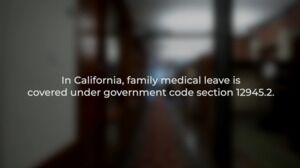Description
California law protects job seekers from unfair discrimination based on criminal history. If you’ve been wrongfully denied employment, the Dolan Law Firm can help you fight for your rights and recover damages. Contact our hiring discrimination lawyers to learn how we can assist you.
View transcript
California passed a law to protect
people who have had a history of crime
from being automatically
rejected from employment.
This law is contained in California
Government Code Section 12952.
It protects any inquiry
or demand for disclosure
of a criminal history pre-offer.
That means you cannot be asked
about it on an initial application.
If an offer is made,
an employer, post offer,
may ask
if you've been convicted of a crime.
You don't have to reveal anything
that is arrest without a conviction,
any dismissed items,
or an expunged record.
If an employer
makes a preliminary decision
not to hire someone,
they have to notify them in writing
and to inform the applicant of the reason
for this disqualifying conviction.
Additionally, the employer needs
to notify the applicant for the basis
of the preliminary decision
and provide a copy
of the conviction history,
including any type of consumer report
that would show a criminal background.
A preliminary decision not
to hire because of a criminal conviction
also requires the employer
to provide an explanation
that if the applicant chooses to respond,
they may do so in writing.
The employee has five days
to challenge the decision
or to provide additional information.
If the applicant is out of state,
they can have up to 10 days,
and if they're outside
the country, 20 days.
If the employer decides provides
to make the preliminary decision final,
the employer has to notify
the applicant in writing.
That notice needs
to include the final decision reached.
It may or may not include a justification
or explanation of the employer's reasoning
for reaching a decision.
An employer
who has made the decision not to hire
must provide the applicant
with knowledge as to any process
that exists for the employee to challenge
or to request reconsideration.
If an applicant feels
they've been wrongfully treated,
they can make a report
to the Civil Rights Department
of the Labor Department.
An employer who violates
the law may be liable for damages,
including lost wages
as well as non-economic damages
and attorney's fees.
Just because somebody has a criminal
record doesn't mean that they can't work.
If you've encountered
a problem of this type,
contact us at dolanlawfirm.com.


































